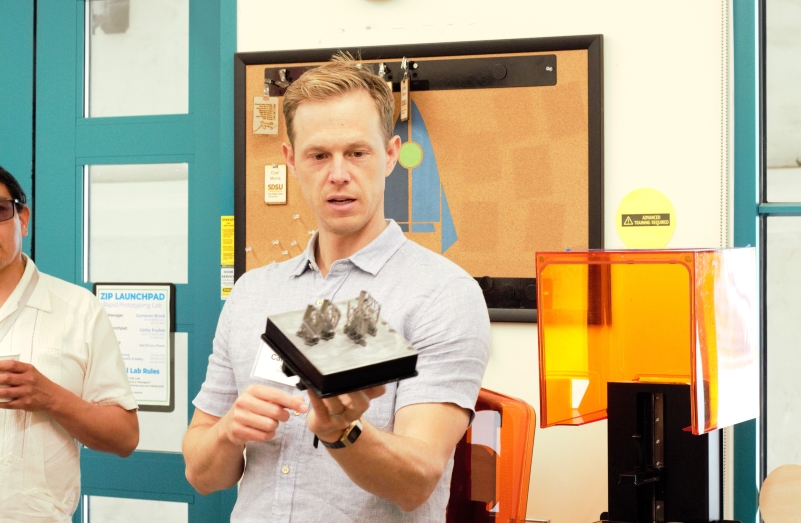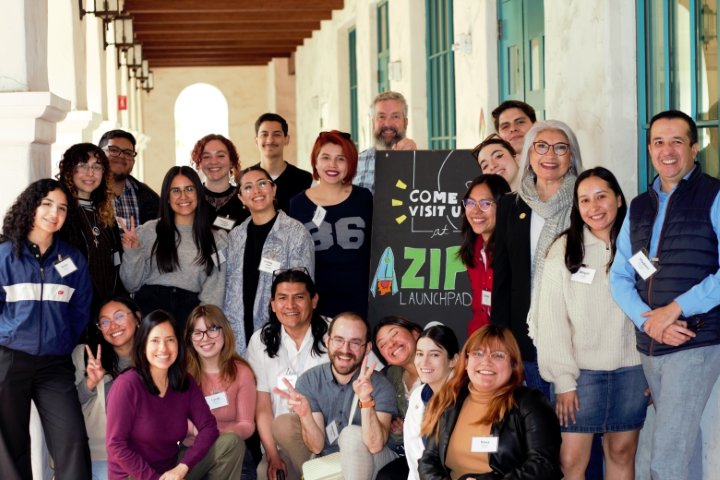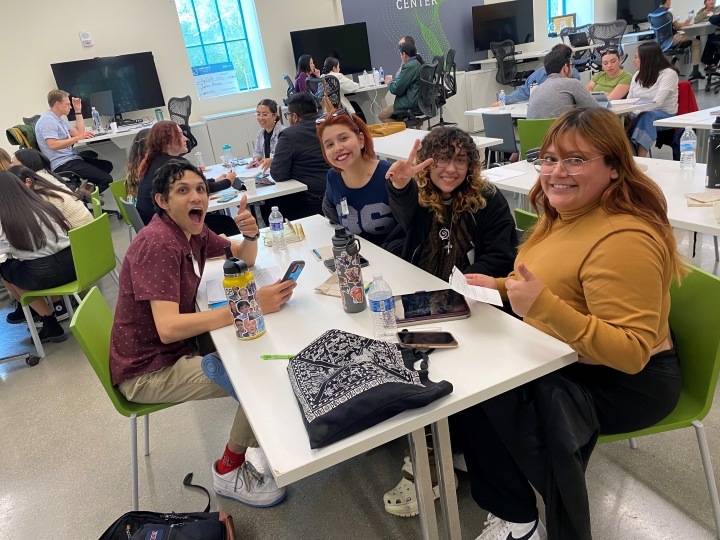SDSU cultivates binational entrepreneurship, hosts Tijuana students at ZIP Launchpad
The day-long session introduced Tijuana-based industrial design scholars to techniques for transforming their product ideas into potential startups

Industrial design students from Tijuana sharpened their entrepreneurial skills at San Diego State University’s ZIP Launchpad last week, building on a collaboration that began during SDSU’s RE:BORDER 2023 conference.
Fifteen students and five professors from Universidad Autónoma de Baja California (UABC) spent a day learning about prototypes, product development and market research for five fledgling startup ideas.
Projects included an interactive toy that provides a new way of learning for visually impaired kids; community monitoring photo stations that crowdsource data on beach pollution and erosion; a novel musical instrument designed so students with disabilities can play and experience music education; adobe shelters to help birds of prey regain a foothold in habitat that is now urbanized; and a sensory toy to foster social learning in children with autism.
Last fall, UABC students presented these and other ideas at a Shark Tank-style pitch competition during RE:BORDER 2023, the annual SDSU-led conference that fosters binational collaboration on urgent transborder issues such as runoff pollution, transportation, and the region’s shared economies. The conference was held on UABC’s Tijuana campus.

It drew a large, high-energy crowd, and culminated in an invitation for Tijuana students to come to SDSU’s campus to experience SDSU’s ZIP Launchpad, which has helped produce about 40 startups since it was founded 12 years ago.
“One of the things that we observed (at RE:BORDER) was they are great designers but maybe need to learn strategies about entrepreneurship, customer discovery and rapid prototyping that ZIP Launchpad is well suited to expose them to,” said John Crockett, associate vice president for research advancement within SDSU's Division of Research and Innovation.
UABC students and faculty got a look at 3D printers and other prototyping gear in ZIP Launchpad’s H.G. Fenton Company Idea Lab. They then learned how artificial intelligence can help flesh out an idea and turn it into a marketable product.
Later, Division of Research and Innovation student assistants worked with UABC teams to prepare one-minute pitches about their ventures, in English, for a panel of judges made up of SDSU faculty and staff.
“I think our students gained confidence in showcasing their projects and felt also appreciated by the SDSU team; practicing their skills in English at an academic and professional level at the same time,” said Alejandro Daniel Murga Gonzalez, professor of engineering sciences and technology at UABC.
“You also gave us the insight of questioning our students in terms beyond their professional profile as product designers and thinking about the overall impact of their projects at a business level,” said Murga Gonzalez.

He hopes the trip to ZIP Launchpad will encourage UABC students to participate in the next RE:BORDER Conference at SDSU this coming October, paving the way for continued collaboration.
Cristina Alfaro, associate vice president of SDSU International Affairs, said these binational exchanges have the potential to transform how the region cultivates innovation.
“I want to make sure that this is something we will be able to continue,” she added. “It is not just innovation. It is cultural enrichment. It is holistic enrichment for everybody here.”

